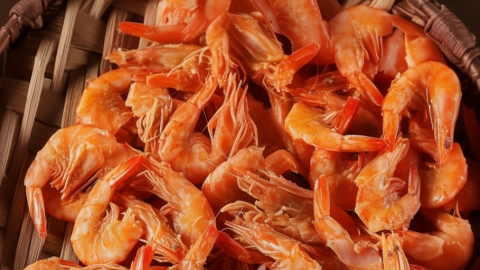Can shrimp and cauliflower be eaten together?
Generally speaking, shrimp and cauliflower can be eaten together, but it is not recommended to consume them in large quantities. The detailed analysis is as follows:

Shrimp is rich in high-quality protein, calcium, magnesium, and other essential minerals, helping to replenish key nutrients and support tissue repair. Cauliflower contains vitamin C, dietary fiber, and various phytochemicals. Vitamin C aids in nutrient absorption, while dietary fiber promotes intestinal motility and improves digestion. When cooked together—such as in dishes like boiled shrimp with stir-fried cauliflower or shrimp with braised cauliflower—the combination offers both the tender freshness of shrimp and the crisp texture of cauliflower, enhancing flavor and providing more comprehensive nutrition. This pairing aligns with the principles of balanced eating and is a common, safe choice in daily diets.
When consuming shrimp and cauliflower, care should be taken to select fresh shrimp, remove the digestive tract (shrimp vein) before cooking, and ensure thorough cooking to avoid gastrointestinal discomfort from raw or undercooked seafood. Cauliflower should be thoroughly washed and can be briefly blanched beforehand to remove surface impurities and soften its texture. Individuals allergic to shrimp should avoid this food entirely. Cooking methods should be light and清淡 (light-flavored), minimizing excessive oil and salt. Portion control is important, especially for those with weak digestive systems, to prevent overburdening the gastrointestinal tract.






